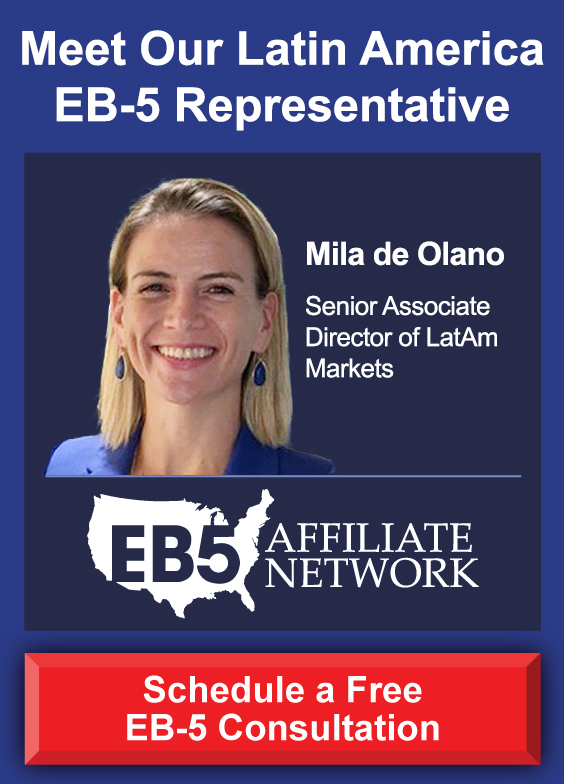
Permanent resident status in the United States is something most people in the world can only dream of. Boasting the world’s largest economy, unparalleled freedom, and state-of-the-art health and education facilities, the United States is the number one destination of immigrants worldwide. The problem is that immigration is difficult, especially when it’s to such a sought-after nation. Most education- or employment-based visas come with stifling restrictions and only allow a temporary stay, with the visa holder obliged to return to their home country upon visa expiration. With permanent resident status, such obstacles can be avoided.
Some foreign nationals—especially those from visa-free or visa-waiver countries—may question the utility of an EB-5 visa when they can attend school in the United States (or send their children to school in the United States), purchase property in the United States, and vacation in the United States without permanent resident status. Indeed, permanent resident status isn’t required to take advantage of these opportunities. However, making an EB5 investment is worth it for a number of reasons—and savvy investors may even earn a handsome return on investment in the process.
Studying as a Green Card Holder: In-State Tuition Savings, Higher Admission Rates, Employment Freedom
It’s absolutely possible to earn a degree from a prestigious U.S. university as an international student—in fact, every year, hundreds of thousands of international students do. An F-1 student visa allows foreign nationals to enter the United States for the purpose of studying at their college of enrollment, but upon graduation, they must return to their home country or quickly find a company willing to sponsor them for an employment-based visa. F-1 visa holders are also severely restricted in the types of employment they may undertake in the United States, usually only able to take jobs offered by their university or required as part of their study program.
With an EB-5 visa, students are free to take any job during their studies, just as a U.S. citizen can. They can freely apply for internships and other positions to bolster their resume for their post-graduation job search, making them more employable than their peers on F-1 visas. Permanent residents also enjoy a less stressful job search after earning their degree, as they can stay indefinitely in the United States regardless of their success in securing employment.
Holding a green card also offers advantages before a student enrolls in a U.S. post-secondary education institute. Permanent residents applying to schools in their state of residence may be eligible for in-state tuition savings, which can save them tens of thousands of dollars a year. U.S. universities also favor U.S. citizens and permanent residents in the application process, making the admissions process easier and less competitive than for international students. Considering this, making an EB-5 investment could indeed be the difference between admission and rejection for a prospective student.
Investing as a Green Card Holder: Safer Investments, More Legal Protections, Easier Access
The United States allows individuals to purchase real estate, make investments, and deposit capital into bank accounts regardless of nationality or residency, but permanent resident status makes the process far easier and more secure. For one thing, having a green card would significantly facilitate travel between the United States and the foreign national’s home country, giving them more access to their own investments. These travel privileges extend beyond the United States to the various countries that hold travel treaties with the United States, so a foreign national may find that after making a successful EB-5 investment, they may travel visa-free to numerous countries they previously required a visa for. And not just that—an EB5 investment participant’s spouse and unmarried children below the age of 21 also gain these travel privileges.
Another advantage that permanent resident status offers to foreign nationals making investments in the United States is easy access to their U.S. bank accounts in the event of U.S. sanctions against their country. EB5 investments are particularly popular among nationals from politically unstable countries, and U.S. sanctions can be a major threat for temporary visa holders, but green card holders avoid such obstacles. Holding permanent resident status also offers a foreign national more legal rights in any legal procedures that may arise with their financial transactions.
Traveling as a Green Card Holder: Unlimited Stay, Freedom to Go Anywhere, Hassle-Free Entry to the United States
Every year, millions of foreign nationals flock to the United States for a visit—but visitor visas are the most restrictive of all. Visa waiver travelers can stay in the country for up to 90 days, and a B2 visa permits a maximum stay of six months (though an extension is possible). However, in both cases, travelers are extremely limited in what they can do while in the United States—study, employment, and paid performances are all forbidden.
Those who make an EB-5 investment and earn a U.S. green card, however, face no such restrictions. They may stay in the United States indefinitely and have the freedom to engage in any educational or employment activity they wish. They may also enjoy facilitated travel to countries with which the United States holds travel treaties, and they can always enter the United States easily by showing the border officer their green card.
Permanent residents do face one restriction that citizens do not: they must be careful spending too much time outside of the United States. To maintain permanent resident status, a green card holder must demonstrate an intention to permanently live in the United States, and this intention may be questioned if a permanent resident spends more than six months of a year outside of the United States. However, with strategic planning, after making a successful EB5 investment, a green card holder may split their time between the United States and their homeland, enjoying a life divided between the two countries.











